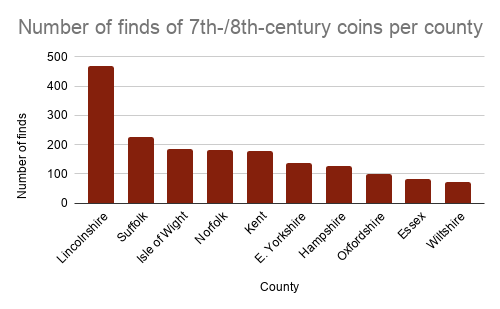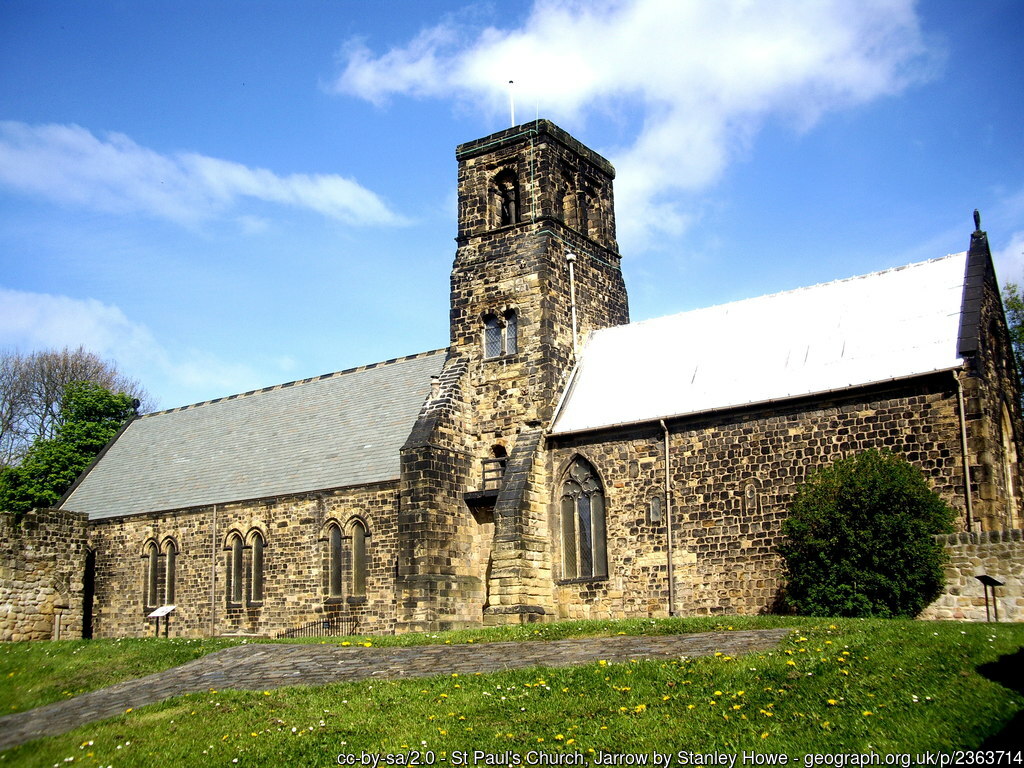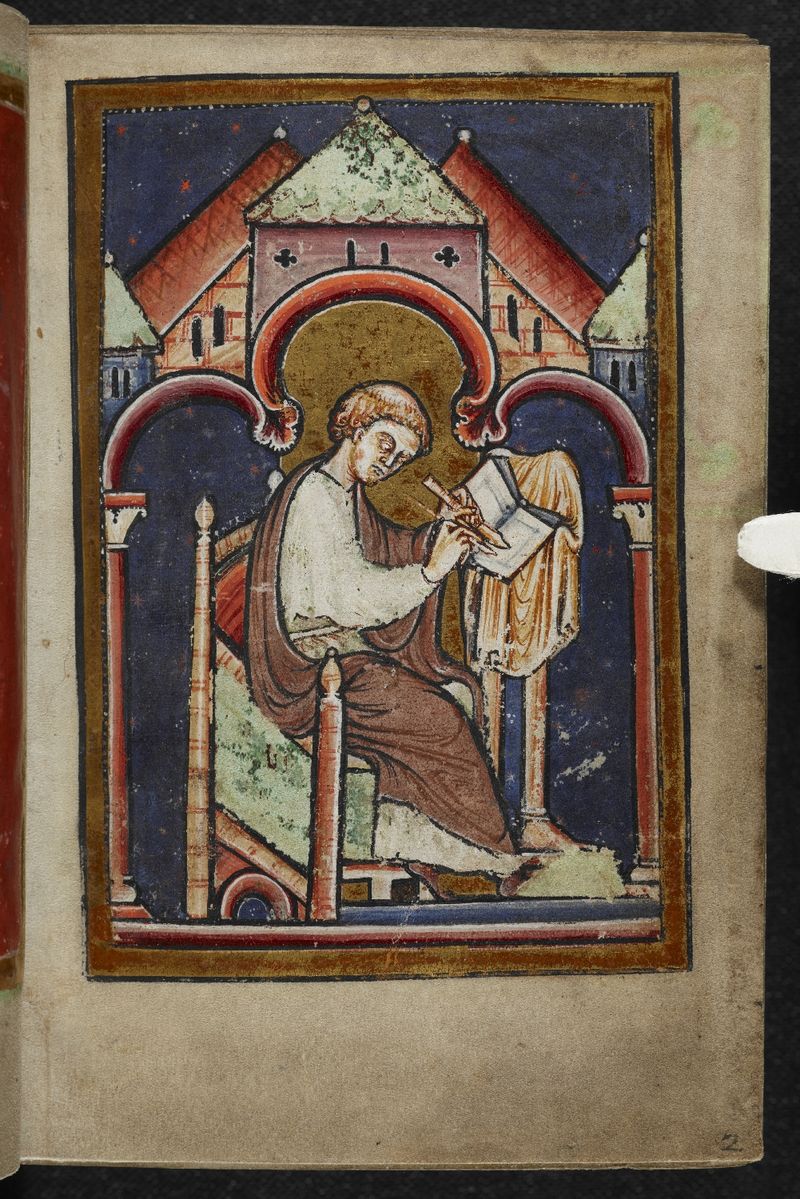The importance of Lincolnshire in the fifth to seventh centuries AD — a new post by me :) https://www.caitlingreen.org/2020/12/the-importance-of-lincolnshire.html
The post consists of a little light-hearted musing on the question of why the kingdom of Lindsey seems to have been of so much interest in the 7thC, and is offered in the absence of a formal launch for the second edition of my book due to the pandemic :) https://twitter.com/caitlinrgreen/status/1333872552696041475
Lincolnshire is the 2nd largest English county, but suffers from lack of early surviving documents & can be rather overlooked. Nonetheless, are good indications that Lincolnshire was perhaps more important in the pre-Viking era than is sometimes allowed e.g. 7th-8thC coin finds:
Part of the issue may be that the modern district of Lindsey is significantly smaller in extent than the seventh-century kingdom of Lindissi/Lindsey whose name it preserves...
Intriguingly, the kingdom of Lindissi/Lindsey seems to have been repeatedly fought over by Mercia & Northumbria in the 7thC e.g Bede says 'the kingdom of Lindissi, which King Ecgfrith had recently won by conquering Wulfhere & putting him to flight’ in Historia Ecclesiastica IV.12
Indeed, not only did it change hands at least 7 times in less than 50 years, but Edwin of Deira oversaw the completion of a stone church in Lincoln in c. 627–8, before even York, & consecrated the next Archbishop of Canterbury, Honorius, there, rather than in York (HE, II.16, 18)
Fwiw, it has been suggested that the large Roman basilica that formed the north of the Roman forum at Lincoln was refurbished in the E7th-century to become this stone church... Might explain exceptional survival of its north wall, which still stands up to 9m tall...
So, what is the explanation for this 7thC interest in Lincoln and Lindissi? The wealth of 7th-/8th-century Lincolnshire may well play a part, but the political history of the region & the family 'baggage' of the two major imperium-building Anglian dynasties may also be relevant…
First, the political history. Lincoln was a Late Roman provincial capital & this centrality seems to have continued into the 5th-6thC, when a British polity named *Lindēs was based at Lincoln, this eventually becoming the 7thC Anglian kingdom of Lindsey: https://twitter.com/caitlinrgreen/status/1333881555358511110
What's esp interesting here is that this British territory seems to have had an impact on the 5th-/6th-century 'Anglian' archaeology of the region e.g. apparent avoidance of Lincoln by the major Anglian cremation-predominant cemeteries, with this arguably lasting into the E6thC…
This is, it should be remembered, in accord with the C14 evidence for the church in the centre of Lincoln's forum that could hold up to c. 100 people—this was arguably maintained into the mid-late 6th-century (its demolition had very probably occurred by 600 & definitely by 620).
Even more intriguingly, there are hints that a vestige of Roman provincial control survived at least some way into the 5thC, although need to be cautious here! It has, however, been noted that 5th/6thC cremation-predominant cems are nearly all located within Lincoln's province…
In this context, worth noting that the likely residence of the Late Roman provincial governor seems to have been maintained into the E5thC & perhaps beyond, & its estate has recently been argued to have continued as a royal estate into the 7thC & beyond… https://twitter.com/caitlinrgreen/status/1334583887775797252
Such a 5th/6thC political context might begin to provide a motive for why the 7thC Anglian dynasties of Mercia & Northumbria might have seen control of the city of Lincoln & kingdom of Lindissi (< British *Lindēs) as the important symbolic & political prize it seems to have been.
In addition, we might also ponder whether the family origins of key lineages in Northumbria & perhaps Mercia could have played a part in making the control of the Lincoln region a prize of particular interest too... https://twitter.com/caitlinrgreen/status/1333894706456113156
The most notable evidence here relates to Lindisfarne, a handful of miles away from the 'royal city' of the Bernicians, as Bede terms it… This name almost certainly means the 'island of the Lindisfaran', with the Lindisfaran being the group-name of the people of Lindissi/Lindsey
Given its history & proximity to Bamburgh, case can be made for the Lindisfaran of Lindisfarne potentially being the ruling lineage of Bernicia, which is notable! Another intriguing name is Jarrow, ‘at the settlement of the Gyrwe’, a group otherwise known from S. Lincs & N. Cambs
With respect to Jarrow, it is of additional note that James Campbell has, in fact, suggested that both Benedict Biscop and Bede were actually themselves members of the royal lineage of Lindsey…! (Pics: Bede, https://blogs.bl.uk/digitisedmanuscripts/2018/05/the-real-venerable-bede.html; Lindsey royal family, https://digital.bodleian.ox.ac.uk/objects/93b83416-7972-40d7-9789-18f54e17ae25/surfaces/a7df69ec-fcc4-4a85-8239-1980027c7488/)

 Read on Twitter
Read on Twitter















